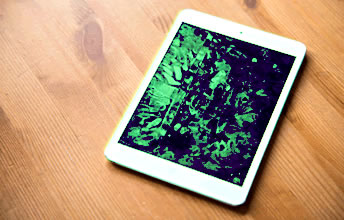Recent News & Events
Smartphones Prove Useful for Detecting Bacteria in the Human Body
04

A team of scientific researchers from the University of Oregon conducted an applied microbiology study aimed at determining the type of bacteria that thrive on smartphones and on the skin of a person as well as his or her nearby environments. This new study published in the PeerJ Journal’s June issue showed findings that offer great potential in helping forensic investigations, human diseases researches, and infection control experiments in the future.
For the study, the team collected swab samples from the index fingers and thumbs as well as the LCD screens of smartphones owned by 17 different people. Upon swab sample analysis, the findings revealed that there are more than 7,000 diverse types of bacteria existing in all samples.
Some of the distinct types of bacteria found in the collected samples include the Streptococcus (bacteria found mostly on the mouth), Corynebacterium (bacteria on the skin), and Staphylococcus (bacteria found on several parts of the body such as the throat, nose, hair and skin). Additionally, they noted that 82 percent of the bacteria present in the hands alone could be attributed to the microbes (bacterial blueprint) in smartphones upon use.
James Meadow, a post-doctoral researcher and scientist from the University of Oregon, stated that every participant had more compatible bacteria in their own smartphone than with the other participants, proving a direct relationship between the human and his gadget.
Further findings also stated that smartphones bear its owner’s specific “microbiome,” or the collection of microbes found in a specific environments, personal items, or body part. The research also proved that smartphones harbor not only the bacteria passed from the hands of its owner but also those that have been gathered from contact to surfaces, the owner’s surroundings, and other people.
As such, Meadows and his team were optimistic in the significance of this study to future forensic and crime scene investigations, given its ability to detect the bacteria in personal items and compare it to the bacteria found on the owner himself. The study can also be instrumental to revolutionary studies on human disease and infection control using the bacteria samples found on smartphones.
Bacteriology and microbiology studies like this progressive research on the relationship of bacteria found within smartphones and their owners require high-grade laboratory instruments to obtain precise and reproducible results. Discovery Scientific Solutions (DSS) offers a comprehensive line of advanced laboratory equipment and supplies designed to meet the demands of cutting-edge life sciences.
Discovery Scientific Solutions provides top-quality lab products for field applications including forensic science, cytology, microbiology, genomics, chemistry, and biotechnology.
